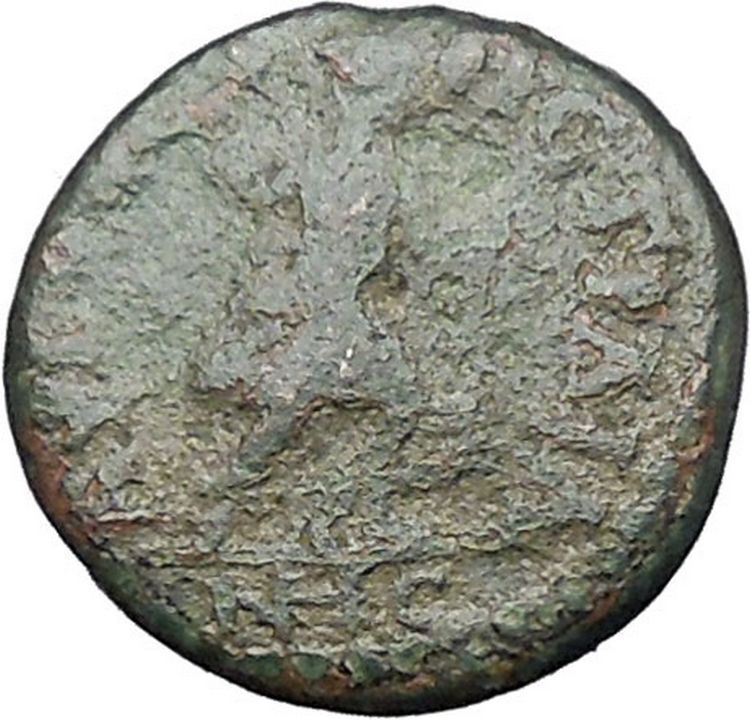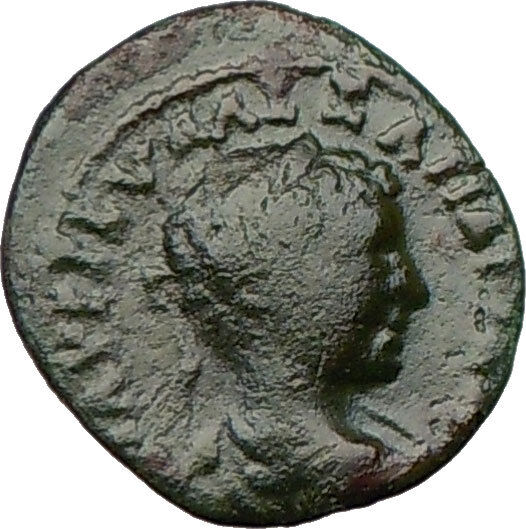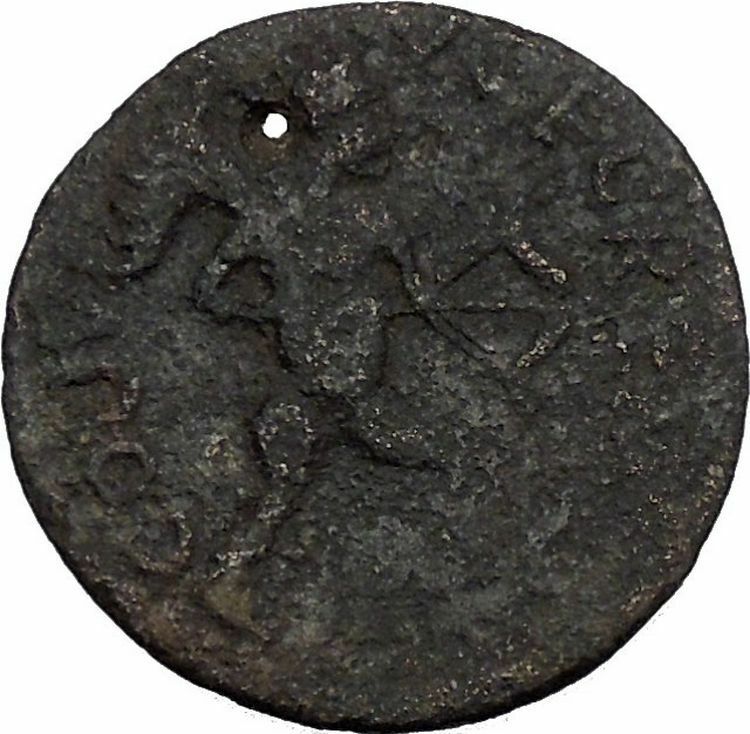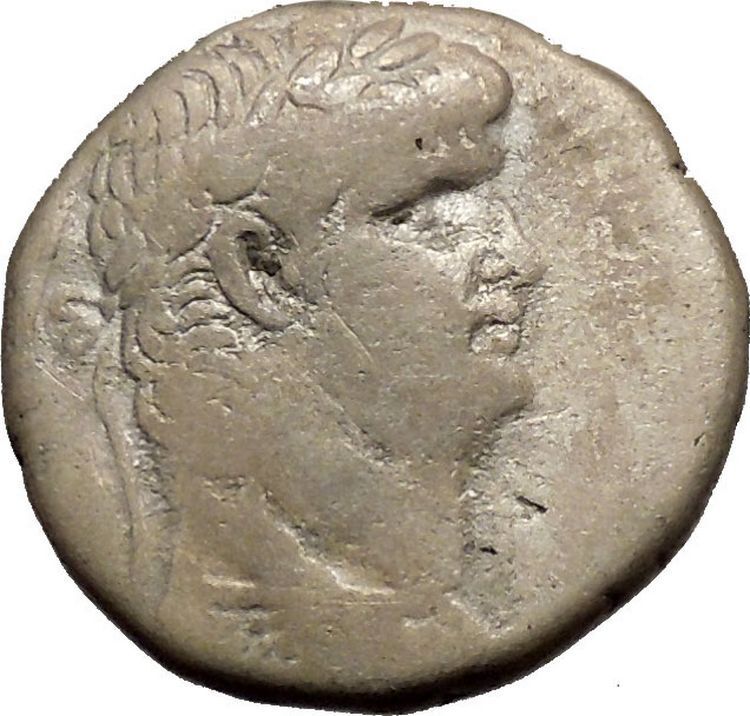|
Herennius Etruscus – Caesar: 249-251 A.D. and Roman Emperor: 251 A.D.
Billon Silver Tetradrachm 26mm (11.61 grams) of Antioch in SELEUCIS and PIERIA
Issued as Caesar, Struck circa 249-251 A.D.
Reference: Prieur 628; McAlee 1153a
Certification: NGC Ancients XF 4935492-006
Bareheaded and draped bust right.
Eagle standing left on palm frond, with wings spread, holding wreath in beak; S C in exergue.
You are bidding on the exact item pictured, provided with a Certificate of Authenticity and Lifetime Guarantee of Authenticity.
Billon is an alloy of a precious metal (most commonly silver) with a majority base metal content (such as copper). It is used chiefly for making coins, medals, and token coins. The word comes from the French bille. The use of billon coins dates from ancient Greece through the Middle Ages. During the 6th and 5th centuries BC, some cities on Lesbos Island used coins made of 60% copper and 40% silver. Billon coins are perhaps best known from the Roman Empire, where progressive debasements of the Roman denarius and the Roman provincial tetradrachm.
Founded by Seleukos I circa 300 B.C. with Greek and Macedonian settlers brought from the destroyed city of Antigoneia on the Orontes. The city was named after Seleukos’ father with the purpose of being a western capital to guard against the northern expansion of the Ptolemaic kingdom. Eventually as many territories were lost, Antioch became the only capital of the Seleukid kingdom. Pompey the Great deposed the last king Antiochos XIII in 64 B.C. The Romans then made it a capital of a new Roman province and the seat of the Roman governors. There were temples of Olympian Zeus, Apollo in Daphne, hippodrome (built under the Seleukids and embellished by the Romans) and colonnaded main streets (being a gift from Herod the Great). It was an important center for the arts and learning.
 Herennius Etruscus (Latin: Quintus Herennius Etruscus Messius Decius Augustus; ca. 227 – June 251), was Roman emperor in 251, in a joint rule with his father Trajan Decius. Emperor Hostilian was his younger brother. Herennius Etruscus (Latin: Quintus Herennius Etruscus Messius Decius Augustus; ca. 227 – June 251), was Roman emperor in 251, in a joint rule with his father Trajan Decius. Emperor Hostilian was his younger brother.
Herennius was born in or near Sirmium in Pannonia (now Sremska Mitrovica, Serbia), during one of his father’s military postings. His mother was Herennia Cupressenia Etruscilla, a Roman lady of an important senatorial family. Herennius was very close to his father and accompanied him in 248, as a military tribune, when Decius was appointed by Philip the Arab to deal with the revolt of Pacatianus in the Danube frontier. Decius was successful in defeating this usurper and felt confident to begin a rebellion of his own in the following year. Acclaimed emperor by his own troops, Decius marched into Italy and defeated Philip near modern Verona. In Rome, Herennius was declared heir to the throne and received the title of princeps iuventutis (prince of youth).
From the beginning of Herennius’ accession, Gothic tribes raided across the Danube frontier and the provinces of Moesia and Dacia. At the beginning of 251, Decius elevated Herennius to the title of Augustus making him his co-emperor. Moreover, Herennius was chosen to be one of the year’s consuls. The father and son, now joint rulers, then embarked in an expedition against king Cniva of the Goths to punish the invaders for the raids. Hostilian remained in Rome and the empress Herennia Etruscilla was named regent. Cniva and his men were returning to their lands with the booty, when the Roman army encountered them. Showing a very sophisticated military tactic, Cniva divided his army in smaller, more manageable groups and started to push back the Romans into a marshy swamp. Sometime during the first two weeks of June, both armies engaged in the battle of Abrittus. Herennius died in battle, struck by an enemy arrow. Decius survived the initial confrontation, only to be slain with the rest of the army before the end of the day. Herennius and Decius were the first two emperors to be killed by a foreign army in battle.
With the news of the death of the emperors, the army proclaimed Trebonianus Gallus emperor, but in Rome they were succeeded by Hostilian, who would die shortly afterwards in an outbreak of plague.
|









 Herennius Etruscus (Latin: Quintus Herennius Etruscus Messius Decius Augustus; ca. 227 – June 251), was Roman emperor in 251, in a joint rule with his father Trajan Decius. Emperor Hostilian was his younger brother.
Herennius Etruscus (Latin: Quintus Herennius Etruscus Messius Decius Augustus; ca. 227 – June 251), was Roman emperor in 251, in a joint rule with his father Trajan Decius. Emperor Hostilian was his younger brother.




